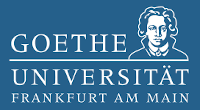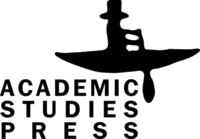The Image of the Jewish Family in German-Jewish Historical Novels of the 19th Century: Between the “Hammer” of Acculturation and Assimilation and the “Anvil” of Tradition
DOI:
https://doi.org/10.31168/2658-3356.2020.10Keywords:
German and Russian Haskalah, image of the family, Jewish tradition, Jewish identity, Jewish reform, Jewish historical fiction, Bildungsroman, Entwicklungsroman, universalism, co-existence of Judaism with secularism, Berthold Auerbach, Ludwig Philippson, Max Ring, Jewish-Russian journal “Voskhod”Abstract
The Russian Jewish journal Voskhod (1881–1906) contains, among other originally German-language and foreign-language contributions, five German Jewish historical fictions by the German Jewish Enlightenment writers Berthold Auerbach, Ludwig Philippson and Max Ring, in Russian translation. These works, set in different periods of Jewish history, represent the struggle of a younger Jewish generation both against traditional Jewish observance and gentile intolerance towards Jews. The characters fight for more tolerance within Judaism and for an opening up of Judaism to secular education as much as they fight for participation in a majority gentile society. The primary place of these conflicts and of the success or failure of the Haskalah project are the characters’ families; in the works discussed, the family survives as an institution for the passing on of Judaism to the younger generation if it proves to be tolerant and reconciling enough. Analysis of the chosen literary texts reveals implied authorial perspec- tives which seek to modernize Judaism to enable it to co-exist with – and survive and even thrive in – an ever-increasingly secularized society. Even more so, the characters’ desire to take an active part in their diaspora society is a result of an impulse inhering in Judaism, to work towards creating a messianic age, in a secu larized version which is to be universally governed by reason. The discussion suggests that such implicitly expressed positions in Jewish German historical novels, in a German Haskalah context, may have been of interest to the journal Voskhod as they may have corresponded to the intention of the journal’s editors to encourage their readers on the path towards reforming but at the same time also preserving Judaism in Russia.












